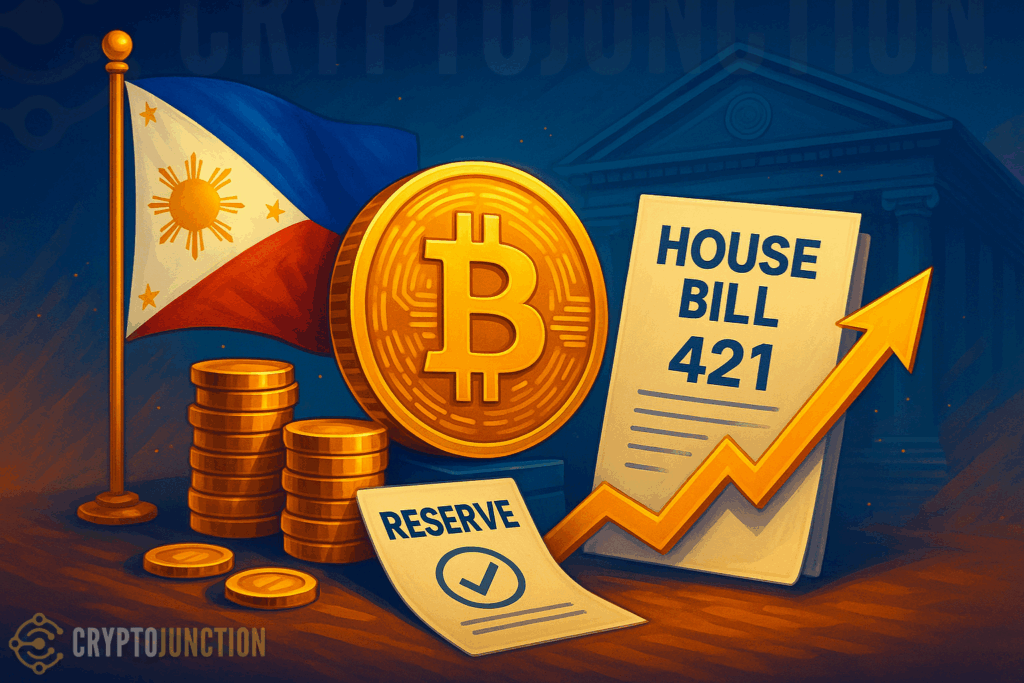The Philippines is moving closer to becoming a crypto pioneer in Southeast Asia. This progress is marked by a proposal to establish a strategic Bitcoin reserve. Congressman Miguel Luis Villafuerte filed House Bill 421 in August 2025. It calls on the Bangko Sentral ng Pilipinas (BSP) to acquire 10,000 BTC over the next five years.
If approved, the BSP would purchase 2,000 BTC annually. This investment would be worth more than $1.1 billion at current prices. The legislation requires all holdings to be locked for 20 years. Liquidation is capped at 10% every two years once the lock-up period ends. To ensure accountability, the bill mandates quarterly proof-of-reserve reports, third-party audits, and secure cold storage distribution across the country.
Why the Proposal Matters
The timing of the bill is significant. The Philippines is grappling with a ₱16.09 trillion ($285 billion) national debt. Villafuerte argues that a Bitcoin reserve could act as a hedge against inflation and rising obligations. He described Bitcoin as “digital gold,” citing its strong performance in recent years. This serves as justification for including it in the nation’s financial strategy.
Should the law pass, the Philippines would rank as the sixth-largest government Bitcoin holder worldwide. It would surpass El Salvador’s 6,268 BTC. According to Bitbo data, sovereign governments currently hold more than 463,000 BTC. The United States leads with nearly 200,000 coins. The move would also make the Philippines the first Southeast Asian country to legislate a sovereign Bitcoin reserve.
Industry Reaction
The proposal has drawn support from local industry leaders. Paul Soliman, CEO of BayaniChain, called it “a courageous move” that treats Bitcoin as a genuine store of value. Miguel Cun of Satoshi Industries described the plan as “an asymmetric opportunity” for the Philippines. He pointed to long-term benefits for the economy.
Still, critics warn of risks tied to Bitcoin’s volatility and the use of taxpayer funds. They argue the strategy will only succeed with strong governance, education programs, and gradual implementation.
Outlook And Global Context
Globally, governments are increasing exposure to Bitcoin. The Philippine proposal could inspire other countries in the region to follow suit. Analysts believe the initiative may attract investment and boost financial credibility. It might also strengthen the country’s image as a crypto-friendly economy.
In the short term, the market may respond with speculation as the bill moves through Congress. In the long run, however, the Philippines Bitcoin reserve could become a cornerstone of the country’s financial strategy. This could reshape its position in the global digital economy.

